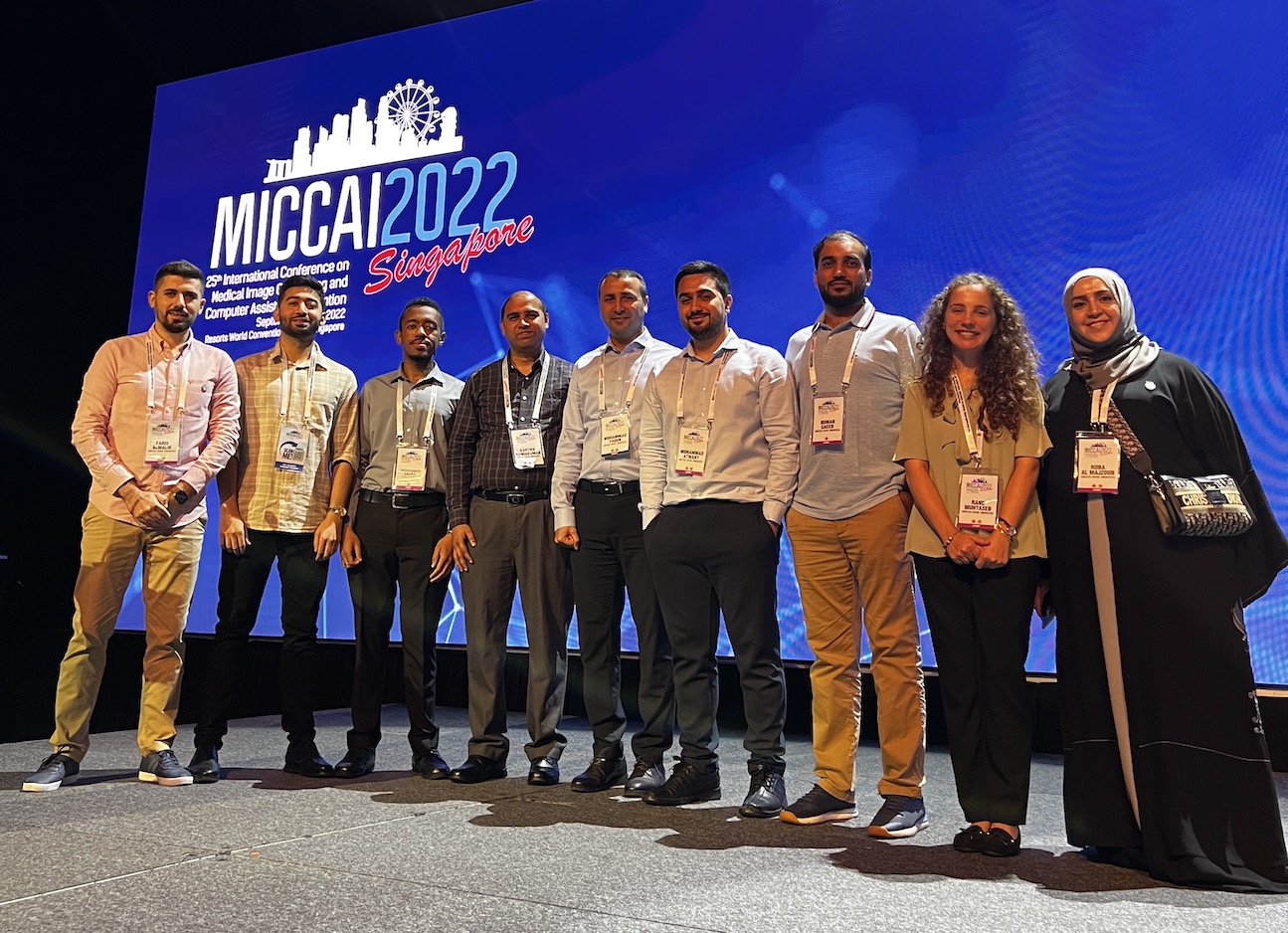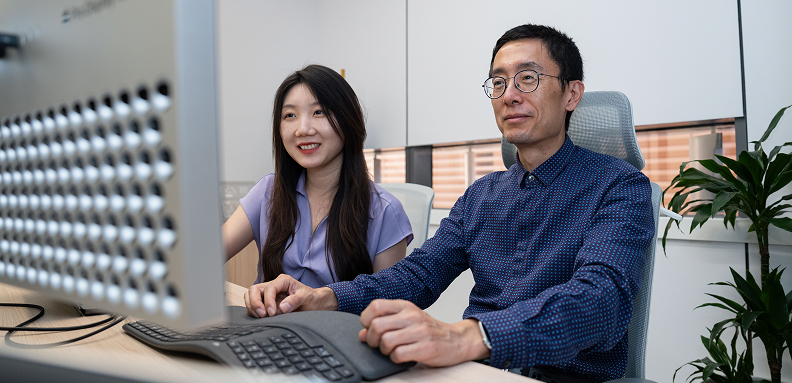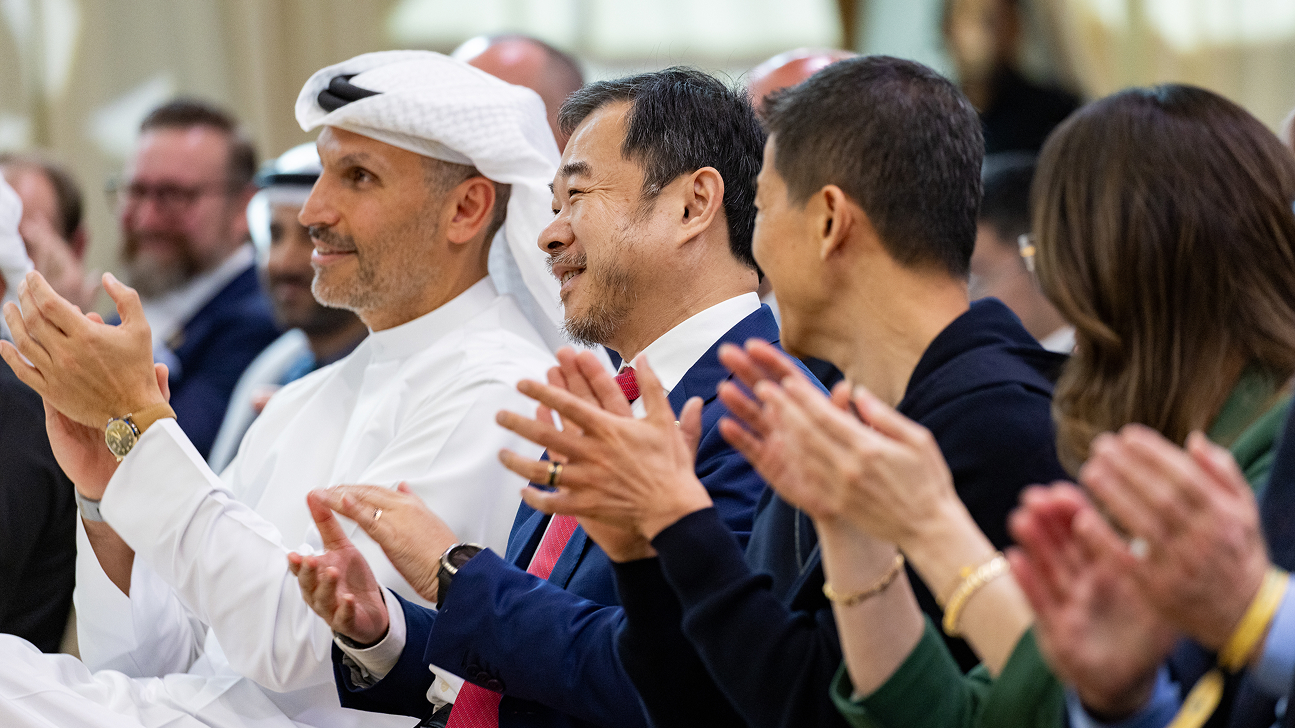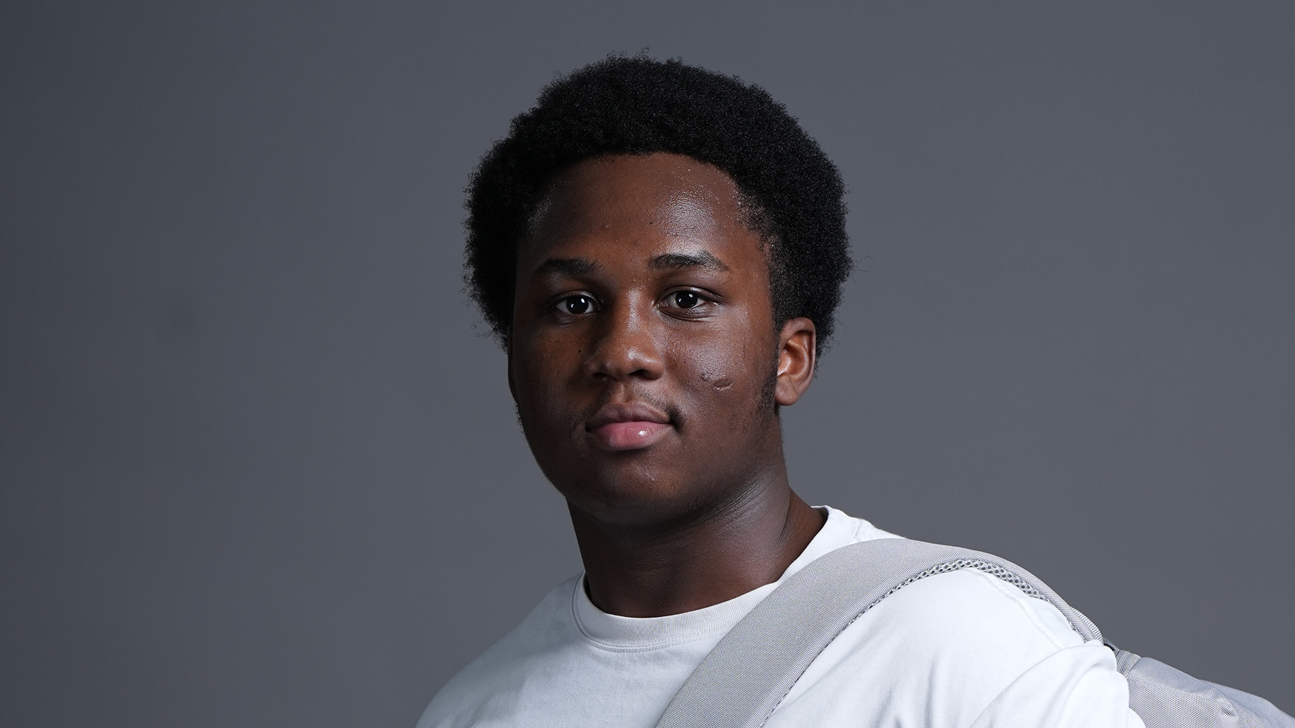MBZUAI students shine at MICCAI
Eight papers accepted at top conference in medical image computing
Thursday, September 22, 2022
MBZUAI faculty, researchers, and students travelled to Singapore this week to present eight academic papers accepted at the 25th International Conference on Medical Image Computing and Computer Assisted Intervention (MICCAI 2022).
MICCAI, which is considered by many to be the top conference in medical image computing, wrapped up today (September 22, 2022) after four days of presentations, tutorials, and workshops from the world’s leading biomedical scientists, engineers, and clinicians.
Interestingly, all of the authors on the accepted papers are from MBZUAI, which reflects the high-quality research undertaken in Abu Dhabi, in the short time the university has been open.
In this field, MBZUAI Assistant Professor of Computer Vision Mohammad Yaqub said there are few research labs worldwide who have managed to publish a similar number of papers in one year at MICCAI.
“Six of our published papers have a master’s student as a first author and are co-authored by a small team which reflects the hard work and dedication needed by each one of these young talents,” Yaqub said.
It is also interesting to note that, in total, seven papers feature a master’s or doctoral student as first author — Naif Alkhunaizi (M.Sc.), Mohammad Atwany (M.Sc.), Numan Saeed (Ph.D.), Rand Muhtaseb (M.Sc.), Faris Almalik (M.Sc.), Mohamed Saeed (M.S.c.), and Ahmed Al Mahrooqi (M.Sc.).
Research Assistant Sevim Cengiz is the first author on an eighth paper accepted from MBZUAI. This points to both the high calibre of MBZUAI master’s and Ph.D. students, as well as the high degree of trust that faculty put in them to perform research to a global standard.
The average number of authors on the papers is three, which reflects the dedication of several small, yet hard-working teams. The vast majority of accepted papers feature five or more authors. The following papers will be published in Spring Lecture Notes in Computer Science in September 2022.
Conference papers
- Numan Saeed, Ikboljon Sobirov (M.Sc. student), Roba Al Majzoub (M.Sc. student), and Mohammad Yaqub. “TMSS: An End-to-End Transformer-based Multimodal Network for Segmentation and Survival Prediction“.
- Mohammad Atwany and Mohammad Yaqub. “DRGen: Domain Generalization in Diabetic Retinopathy Classification”.
- Faris Almalik, Mohammad Yaqub, and Karthik Nandakumar. “Self-Ensembling Vision Transformer (SEViT) for Robust Medical Image Classification”.
- Naif Alkhunaizi, Dmitry Kamzolov (Research Associate), Martin Takáč, and Karthik Nandakumar. “Suppressing Poisoning Attacks on Federated Learning for Medical Imaging”.
- Rand Muhtaseb and Mohammad Yaqub. “EchoCoTr: Estimation of the Left Ventricular Ejection Fraction from Spatiotemporal Echocardiography”.
Workshop papers
- Ahmed Al Mahrooqi, Dmitrii Medvedev, Rand Muhtaseb, and Mohammad Yaqub. “GARDNet: Robust Multi-View Network for Glaucoma Classification in Color Fundus Images”.
- Mohamed Saeed and Mohammad Yaqub. “End-to-End Myocardial Infarction Classification from Echocardiographic Scans”.
- Sevim Cengiz, Ibraheem Hamdi, and Mohammad Yaqub. “Automatic Quality Assessment of First Trimester Crown-Rump-Length Ultrasound Images”.
“Deep learning in medical image classification and regression can be used to estimate many things including cancer survival rates but combined with artificial intelligence to mimic an oncologists’ analytical behavior, we can yield a more accurate diagnosis,” Yaqub said. “One of the papers explores this as a promising pathway forward in assessing the health of a human heart from echocardiography scans.”
The papers are the outcome of two MBZUAI faculty led labs – BioMedical Image Analysis (BioMedIA) lab (Yaqub) and SPriNT-AI (MBZUAI Associate Professor of Computer Vision Dr. Karthik Nandakumar). The labs are excelling this year with several papers accepted at top artificial intelligence (AI) conferences around the world.
“Machine learning (ML) can play a major role in modernizing healthcare,” Nandakumar said. “However, can we really trust the ML algorithms being used currently? Two of the published papers at MICCAI 2022 examine this issue and propose solutions to enhance the trustworthiness of ML models/algorithms commonly used in medical imaging.”
Related
Not just another deck: how MBZUAI’s okkslides is redefining executive communication
The MBZUAI startup is turning messy research and organizational context into decision-ready narratives with a human-in-the-loop AI.....
Read MoreMBZUAI marks five years of pioneering AI excellence with anniversary ceremony and weeklong celebrations
The celebrations were held under the theme “Pioneering Tomorrow: AI, Science and Humanity,” and featured events, lectures,.....
- celebration ,
- five year anniversary ,
- ceremony ,
- event ,
- board of trustees ,
- campus ,
- students ,
- faculty ,
Youngest MBZUAI student sets sights on AI superintelligence at just 17
Brandon Adebayo joined the University’s inaugural undergraduate cohort, driven by a passion for reasoning, research, and the.....
- engineering ,
- student ,
- Undergraduate ,


